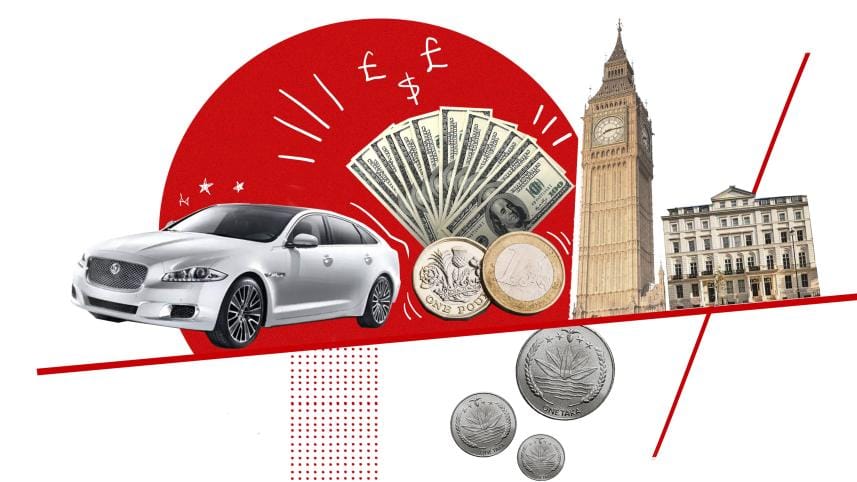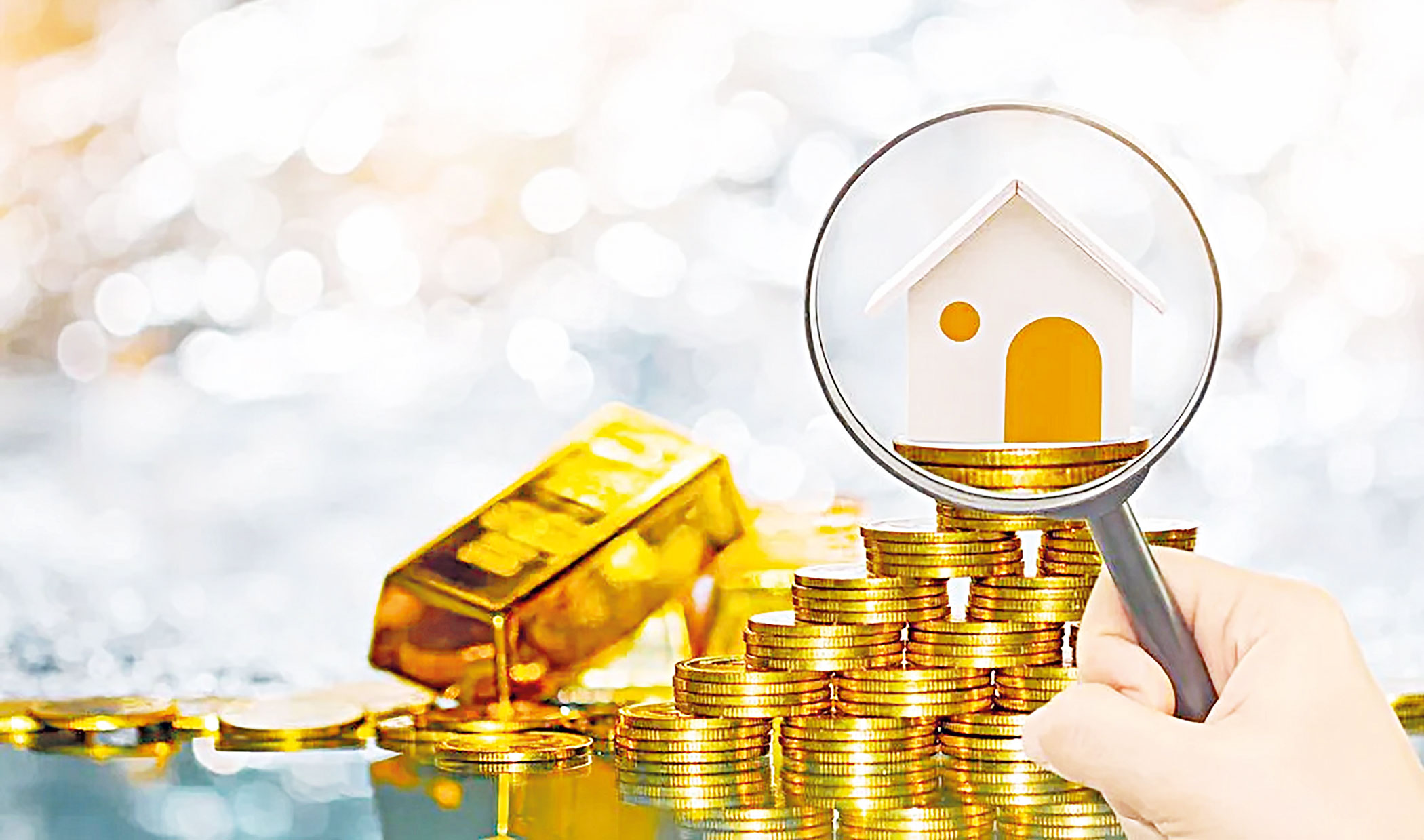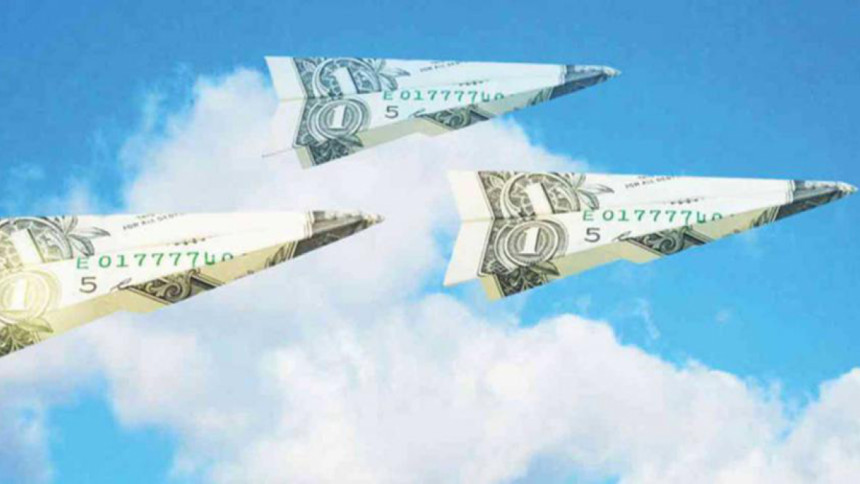Who buys property abroad, and who pays for it?

Foreign exchange transactions in Bangladesh are regulated through the Foreign Exchange Regulation Act, 1947 (amended in 2015). According to Section 5(1)(e) of this act, no citizen of Bangladesh is permitted to purchase property outside the country without the special approval of Bangladesh Bank. Yet, we have been seeing reports of Bangladeshi businessmen, politicians and bureaucrats buying properties abroad. Before, those who amassed wealth through corruption used to choose mainly Canada or Malaysia to purchase property. Now, with a rise in corruption and subsequently in the amount of money being laundered, countries like the UAE, Singapore, the United States, and the United Kingdom have been added to their choice list.
According to the EU Tax Observatory, based on the analysis of the data collected by the US-based Center for Advanced Defense Studies (C4ADS), 459 Bangladeshis bought 972 properties in Dubai till 2020 without disclosing information in Bangladesh. On paper, the value of these properties stands at $312 million, but in reality it is much higher. After 2020, the tendency of rich Bangladeshi businessmen, bureaucrats, politicians, bankers and contractors to purchase residential properties in Dubai has increased. According to media reports, between January 2020 and June 2021, Bangladeshis invested Tk 346 crore in buying houses and flats in Dubai.
Bangladeshi nationals ranked ninth among the top 10 foreign property buyers in prime London locations in 2020, BDnews24.com reported citing Showhouse, a UK magazine on housebuilding industry. Bangladeshis accounted for 3.7 percent of prime transactions and were ahead of Japanese nationals, who stood at 2.8 percent of the transactions. There are records of at least 98 transactions by Bangladeshi nationals, valued at 122.89 million pounds, between January and September in 2020.
The cases of Bangladeshi rich buying real estate in the UK have increased consistently since 2010. In January 2010, the number of properties registered using Bangladeshi addresses in the UK was 15; by January 2016, the number rose to 52. Only five years later, by August 2021, the number more than doubled to 107. Looking at the list of buyers, it is evident that money looted from various megaprojects, from loans taken out of banks, and through trade misinvoicing have been spent on buying luxurious properties abroad. Some of these buyers are former and current managing directors of state-owned and private banks, some are chairmen and even mid-level officials. There are also hundreds of RMG business owners, past and present high-profile politicians and bureaucrats among the buyers.
The pattern of economic development that has emerged in Bangladesh over the past decade is closely linked to corruption, purchase of foreign assets via money laundering, and the foreign exchange reserve crisis. These cases of illegal property purchase abroad are not the main acts of corruption – these are the symptoms. As corruption increases, the trend of money laundering abroad goes up, which in turn gives rise to hundi and export-import misinvoicing.
In the case of hundi, a person making money illegally in Bangladesh hands over the money in local currency to a hundiwala, who delivers an equivalent amount in dollars to a designated foreign account. Similarly, a migrant worker abroad gives dollars to a hundiwala via local agents, and the hundiwala then pays an equivalent amount of taka to the relatives of the migrant worker in Bangladesh. As long as there is a demand for money laundering, there will always be a space for high-rate dollar-selling through hundi; as a result, remittance coming through official channels will continue to decrease, affecting our forex reserves.
Besides hundi, money is regularly being laundered out of the country via over-invoicing during import and under-invoicing during export. For example, in a recently exposed money laundering scheme, 33 RMG factories and buying houses laundered at least Tk 821 crore over the last six years, according to the customs authorities. Two tactics were used for the illicit money transfer: under-invoicing and using the wrong shipping code. In the first tactic, prices were shown up to 10 times lower than the actual rate during export. In the second tactic, shipments were shown as "samples" when they were actually exports worth hundreds of crores of taka.
Although these incidents provide some insight into the ongoing corruption and money laundering, they are only the tip of the iceberg. We can get an idea about the actual scale of corruption and the amount of money being laundered from the report of Global Financial Integrity (GFI), a US-based research organisation. According to the GFI, Bangladesh lost approximately $8.27 billion annually on an average between 2009 and 2018 because of traders misinvoicing the values of goods to avoid taxes and/or to move money out of the country.
Laundering money in these ways is adversely affecting our forex reserves. Despite various efforts, including curbing imports, the forex reserves has been declining by $1 billion per month for the last two years. Bangladesh's gross forex reserves stood at $48 billion in August 2021, which fell to $26.74 billion as of October 2023, per the central bank's traditional calculation method. However, according to the International Monetary Fund's (IMF) calculation method (BPM 6), our forex reserves is currently $20.90 billion, and according to the Bangladesh Bank account disclosed only to the IMF, the net or actual reserves are under $17 billion.
As there is a shortage of forex reserves, the LC opening for the import of various products and raw materials has to be restricted, which is putting pressure on the country's economy, including the export sector. Corrupt money launderers in this way are destroying the future of millions of people in the country, while securing a bright future for their families abroad.
The government continues to blame the Russia-Ukraine war for the ongoing economic crisis, but corruption and money laundering, which are responsible – at least partly – for the reserve crisis, have been occurring since long before the war. If there was minimum accountability and democratic practice in the country's governance system, these incidents of money laundering from a country like Bangladesh, which is heavily dependent on imports and has a growing trade deficit, would not go on so rampantly. The sooner it becomes clear to all stakeholders that economic development is not a substitute for democratic accountability – rather, democratic accountability is essential for sustainable and equitable economic development – the sooner we will overcome this crisis.
Kallol Mustafa is an engineer and writer who focuses on power, energy, environment and development economics.
Views expressed in this article are the author's own.
Follow The Daily Star Opinion on Facebook for the latest opinions, commentaries and analyses by experts and professionals. To contribute your article or letter to The Daily Star Opinion, see our guidelines for submission.




 For all latest news, follow The Daily Star's Google News channel.
For all latest news, follow The Daily Star's Google News channel. 


Comments